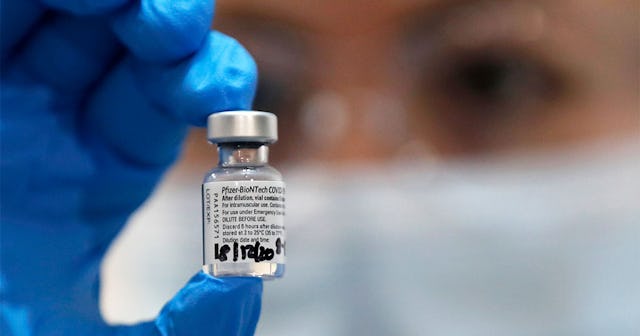Study: Unvaccinated People Are 29 Times More Likely To Die From COVID

The study also shows the Pfizer COVID vaccine is effective in asymptomatic transmission
New data out of an Israeli study shows that the Pfizer vaccine is 94 percent effective in preventing asymptomatic infections, which also means it likely significantly reduces transmission of the COVID-19 virus. The study also produced data that shows the increased risk to unvaccinated people in regard to the virus, and those numbers are jarring.
The big question in regard to the COVID-19 vaccines has surrounded virus transmission, which has meant that even fully vaccinated people have been careful around unvaccinated people — especially if those who aren’t vaccinated are also at a higher risk of infection.
The preliminary information from the Israeli study, where more than half the adults have been vaccinated, most with the Pfizer-BioNTech vaccine, showed those who received the vaccine did not develop symptoms or transmit the disease, which is huge news worth celebrating.
“It looks like 90% reduction in asymptomatic transmission. So that’s really good,” said Dr. Peter Hotez, dean of the National School of Tropical Medicine, at Baylor College of Medicine in Houston, tells USA Today. “That’s really exciting news. If we can vaccinate a high proportion of the U.S. population, I do think we can halt virus transmission.”
Though the Israeli study only looked at the Pfizer vaccine, Hotez says collective research so far suggests that other vaccines also provide the same protections in enabling recipients to produce antibodies that reduce virus levels in the nose and the mouth, which makes them less likely to be contagious.
When it comes to unvaccinated people, however, the danger of the virus is still very real. According to the analysis in the study, unvaccinated individuals were 44 times more likely to develop symptomatic Covid-19 and 29 times more likely to die from Covid-19 than those who had received the vaccine.
All of this newly released data and information is vital for health experts to disseminate and interpret as we learn more about how to gain herd immunity against COVID-19, this particular study, while accurately reported, is preliminary and has not yet been peer-reviewed.
As more and more people across the U.S. have been getting vaccinated, the CDC has issued updated guidance for vaccinated people. For example, grandparents who have been fully vaccinated can safely hug and gather with their unvaccinated grandchildren without worry. Additionally, in-person visits to nursing home patients are also permitted again, as well as hugs for residents who are vaccinated and/or low-risk.
In regard to the Israeli study, public health experts remain hopeful that 2021 will look a lot different than 2020.
“For the people that have already been vaccinated, it’s another reason why it’s so important that we’ve already rolled up our sleeves and received the vaccine,” said Dr. Todd Ellerin, director of Infectious Diseases at South Shore Health, tells ABC News. “And for those who are vaccine-hesitant, hopefully data like that shows that these vaccines are unbelievably effective at not just preventing severe disease, but also markedly reducing infection. And if you can reduce infection, you will reduce transmission.”